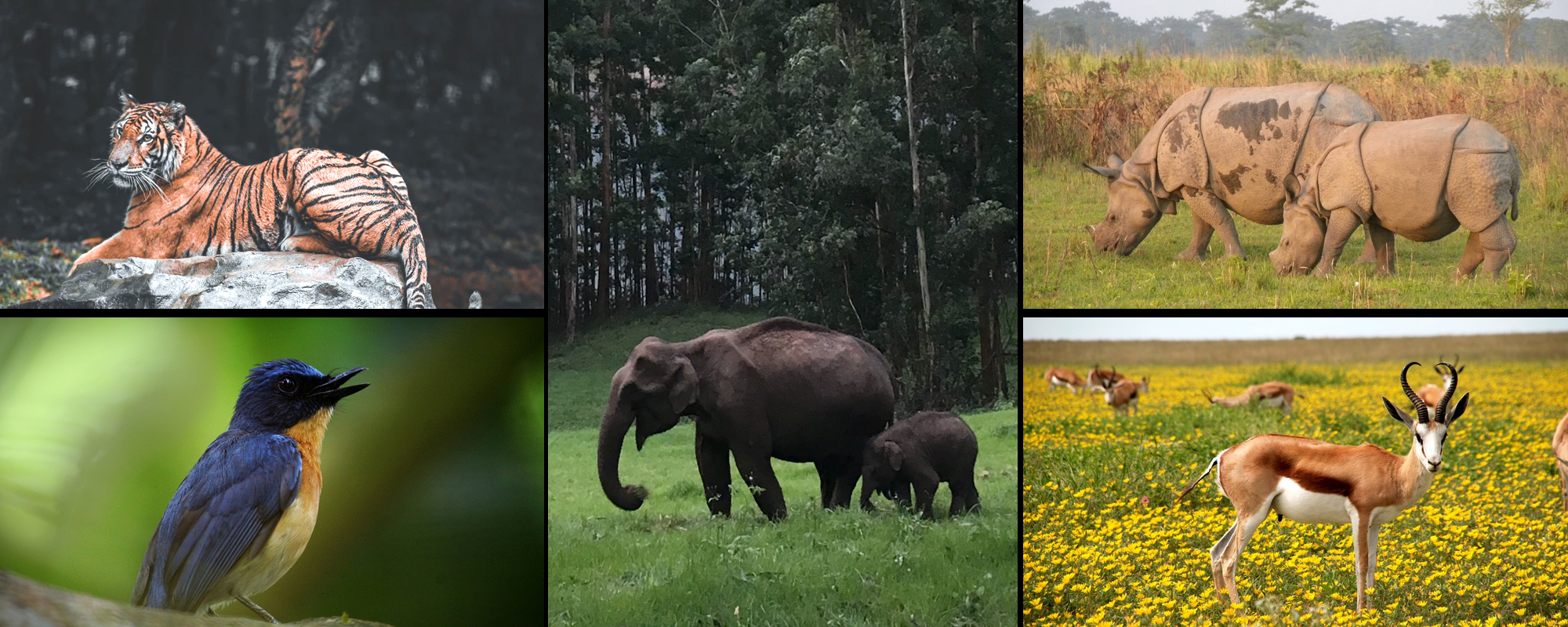
Situated in the extreme South Garo Hills in Meghalaya, at about 90km from Baghmara, the district headquarters of South Garo Hills, Balpakram National Park is a pocket of unspoiled and stunning beauty that adds to the already beautiful state of Meghalaya and is in proximity to the international boundary of Bangladesh. This area of scenic beauty and spectacular visuals has been declared a National Park since 1987 and sits at an altitude of over 3000 feet above sea level with an expansive area of 200 square kilometers.
Balpakram National Park is one of the richest spots of bio-diversity in India, with a vast covering of lush green dense forest inhabiting a diverse range of wildlife and flora. Elephants and Tigers are the flagship of the park along with Hillock Gibbons, the only ape species found in India that can be spotted here and many other rare and exotic faunal species as well. With so much variety of flora and fauna species, some of which are endemic to the area, many almost extinct, and very rare forms of wildlife have evoked the interest of several zoologists, botanists, and naturalists.
The park is known as ‘’The Land of Spirits’’ with some mystical stories that have the world hooked and looking for answers. The native people of the Garo tribe believe and consider the land to be of immense religious significance. It is believed by the tribal people that the spirits of the dead people stopover at this place in their transit. Nevertheless, the breathtaking scenic beauty of the landscape won’t fail to charm you. The attractively curved trees, the canyons, the dense forests inhabiting some of the rare and extinct species, deep river pools with abundant species of fishes, waterfalls, and the unexplained mysteries combined, create an exceptional experience for visitors.
The park consists of sub-tropical vegetation and deciduous trees that is ideal to support the biodiversity here. Some of the most common trees and plants seen here are Pitcher Plants, Orchids, Drosera, etc.
Mammals: Elephant, Tiger, Hillock Gibbon, Deer, Wildcats, Wildcows, Wild Water Buffalo, Leopard, Red Panda, Golden Cat, Indian Bison, Stump-tailed Macaque, Pig-tailed Macaque, Wild Boar, Sambar, Slow Loris, barking Deer, etc.
Birds: Over 250 species of birds have been spotted here till now some of which are Mountain Bamboo Partridge, White Cheek Partridge, Grey-Peacock Pheasant, White-throated Bulbul, Bay Woodpecker, etc.
Reptiles: Python, Viper, Krait, Mountain Lizard, Gecko, King Cobra, etc.
Three seasons prevail here – cold, hot, and the monsoon season. Winters last from November to February with an average temperature of 7 degrees Celsius to 25 degrees Celsius. The summer season is quite hot and dry with average temperature soaring up to 37 degrees Celsius during March and May, and the rainy season starts from June to September.
The best time to visit the Balkapram National Park is from October to March when the climatic conditions are pleasant and many animals are can be spotted.
Nearest Train Station: Nearest railhead from Tura is in Guwahati at 220km away, and the station is well-connected by roads to the park.
Nearest Airport: Nearest airport from Taru is in Guwahati at a distance of 220km. Taxis and buses are available from the airport to the national park.
Road Accessibility : Once you reach Guwahati or Goalpara town, you can get night super buses from Guwahati or day buses from Goalpara towards Tura. From Tura, you will need to hire a vehicle for Baghmara. The helicopter services also operate from Shilong and Guwahati towards Tura.
Copyright 2012-2022 Indiamap Digital Pvt Ltd. All rights reserved. Privacy Policy | Terms of Use